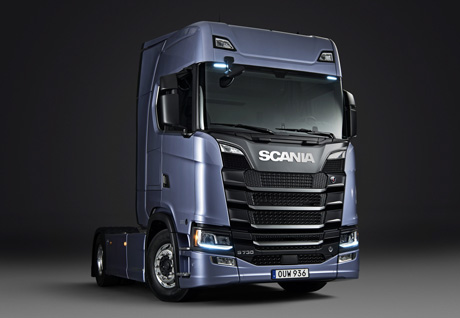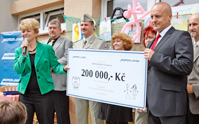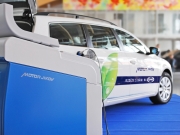
MOTORU JIKOV GROUP’s largest trading partner, Scania, has won the prestigious title of International Truck of the Year 2017 for its completely new S-Series model. MOTOR JIKOV GROUP ranks among the two most important Scania suppliers in the field of high-pressure aluminium parts and assembly, in terms of the number of a new parts – projects orders, supplying 24 new high-pressure and low-pressure castings and six gravity aluminium parts for the award-winning vehicle, representing an overall trade volume of over seven million Euros annually.
The International Truck of the Year title has been awarded since 1977. A professional jury of 25 motoring journalists representing 25 specialized magazines from across Europe decided this year’s winner.

When selecting the best truck, the jury took into consideration innovation, the economy of operation, environmental impact, safety and driver comfort while on long hauls.
This year’s winner, the Scania S-Series, received a total of 149 points, with second place going to a pair of trucks by the Italian brand Iveco with thier related Stralis XP and Stralis NP models, while the Mercedes-Benz Actros took third place with their new generation OM 471 engine.
While assessing the new generation of trucks by Scania, they also emphasized factors such as driver comfort, safety aspects and the positive impact on the overall economic efficiency of carriers.

“This award is the best recognition in the industry, testifying to the fact that our designers and the entire Scania organization have done a great job,” said Henrik Henriksson, President and CEO of Scania. “Our goal has always been to meet the expectations and needs of our customers and this evaluation of the jury clearly confirms that we’ve chosen the right approach with our new generation of trucks.”
Developing the new generation of Scania vehicles lasted ten years, with nearly 4,000 employees working on the project out of a total of 18,000 employees working in Sweden.




